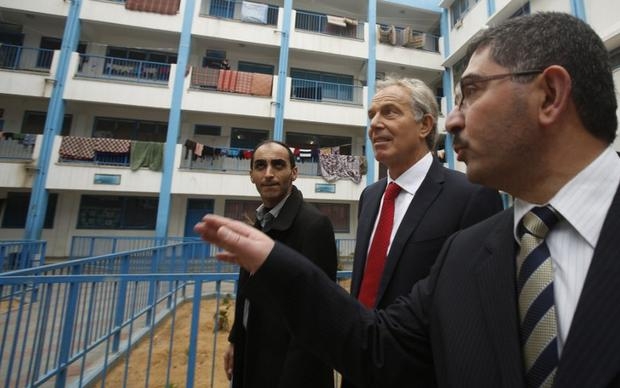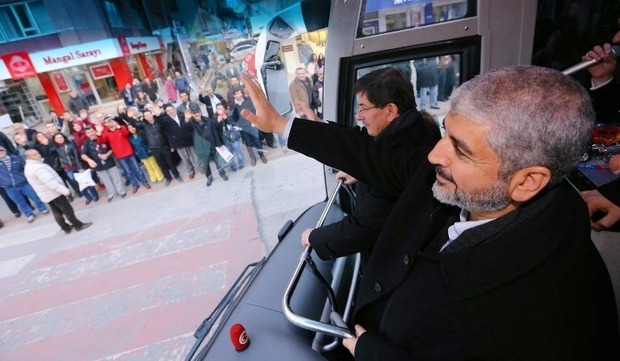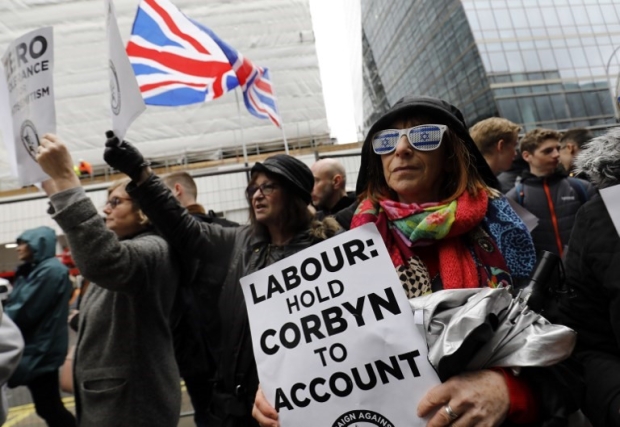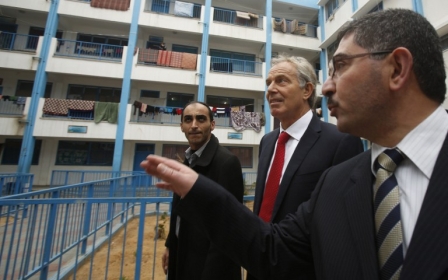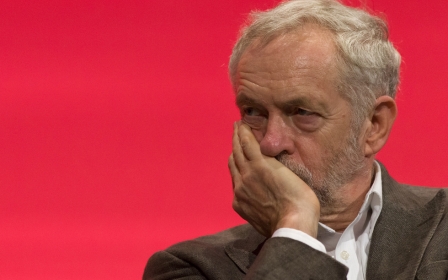Who stands to benefit from the attacks on Jeremy Corbyn?
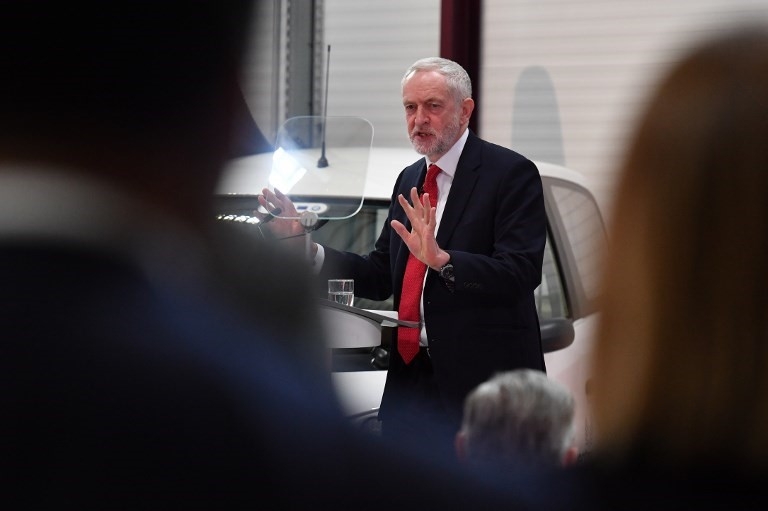
It really makes me wonder why the right-wing Blairite faction within the British Labour Party are embarking on a character assassination of their party's leader Jeremy Corbyn.
The man, who has managed to revive the Labour Party, deserves not only respect but also support. Furthermore, he is being condemned for doing what other British politicians, including former Prime Minister Tony Blair himself, have been doing all along.
Undermining Jeremy
Among other silly things, Jeremy is being witch-hunted for attending, or addressing, conferences where individuals, like myself, who are close to Hamas, are in attendance. The irony is that those meetings were held in a public space, they were publicised and were often covered by the media.
No one at the time seemed to be bothered. Photographs from those perfectly legitimate functions are now being dug up and published as if they had been retrieved from a crime scene. What's so wrong about me and Jeremy Corbyn attending a seminar or giving a joint lecture on the conflict in Palestine and how to resolve it?
The right-wingers and the Zionist lobby are determined to undermine Corbyn and are lying to the public about him and about his associations
The right-wingers and the Zionist lobby are determined to undermine Corbyn and are lying to the public about him and about his associations. At the time when such functions were attended by me and by Jeremy, I was on excellent terms with the British establishment.
The British government, under both Labour and Conservative prime ministers, knew of my links to Hamas and yet had no problem at all dealing with me and even seeking my assistance on a number of occasions.
The most memorable of those instances was when I was approached in 2005 by Scotland Yard’s Special Branch in my capacity as a top leader of the Muslim Association of Britain (MAB), to help the government reclaim Finsbury Park Mosque from followers of Abu Hamza Al-Masri, who had turned it into a centre for preaching hatred and violence.
I, together with a couple of other senior MAB members, became part of an operations room that was also joined by representatives of Special Branch, the Metropolitan Police, the Charity Commission and a number of parliamentarians. The operation was authorised and supervised by the Blair-led Labour government of the time.
The government had tried earlier to do the job and failed. It was my organisation that did it, and we did it for the country, for our community and for Islam.
Mishaal meets Blair
Nearly a decade later, long after Blair was out of office, I received a phone call from my friend Khalid Mishaal, who was at the time head of Hamas's political bureau, seeking my advice regarding a request he received from Tony Blair's office.
Blair wanted to go to Doha and meet Mishaal. Blair had apparently been in touch with the Israelis, the Americans and the Qataris and all of them were enthusiastic about Blair’s new adventure. I told my friend, Mishaal, that Blair did not enjoy a very good reputation here in the UK, and I suspect perhaps also elsewhere in the world because of his role in the war on Iraq, but there was no harm in meeting him and hearing what he had to offer.
I really wonder why Blair was never attacked by the right-wingers or by the pro-Israeli lobby as he commuted in and out of Doha to be entertained by Khalid Mishaal in his own house
Blair's visit to Doha turned to be the first in a long series. Mishaal told me that Blair enjoyed the long evenings they spent together; the two men seemed to get along very well. I could hardly believe it, perhaps because I just never liked or trusted Blair.
Initially, Blair was acting in his capacity as Middle East representative of the Quartet (the UN, US, EU and Russia). But the visits continued even after he left that post. He gave the impression that he was making those visits with the full knowledge and approval of the Americans, the Israelis and the European, including the UK Conservative government.
Blackmailing British public
Then, surprise, surprise, my friend Khalid called one day to say he had been invited to come to London for talks and that Blair told him that Prime Minister David Cameron had okayed the visit and that the UK would take the necessary measures to guarantee his safety during the visit. I strongly encouraged Mishaal to accept the invitation and call Blair's bluff.
But Mishaal did not receive sufficient encouragement from his colleagues within the movement. Last week I met him in Istanbul and he told me he regretted not accepting the invitation. We both agreed that had it taken place it would have broken the embargo imposed by the EU on him and his colleagues within the Hamas leadership.
I wonder why the right-wing Blairites have been silent about Blair regretting, publicly, afterward that he once played a part in enforcing the siege on Hamas.
I can understand that the Israelis regard Hamas to be a terrorist organisation. Reciprocally, we Palestinians regard Israel to be a terrorist entity. This is how people on opposite sides of a conflict like ours tend to identify each other.
But why should the British public, or British politicians for that matter, be blackmailed so as to accept at face value the Israeli position or the Zionist narrative. Israelis and Palestinians are two parties to a conflict that awaits resolution.
Why should the British public, or British politicians for that matter, be blackmailed so as to accept at face value the Israeli position or the Zionist narrative
Certainly, you cannot be part of any resolution if you take sides. Yet, even if some politicians in the UK take sides for whatever reason, you cannot resolve the conflict until and unless you talk to the other side. The Thatcher government considered the IRA to be a terrorist organisation to the extent of muting Jerry Adam's voice on radio and television and using the voice of an actor instead.
Yet, Thatcher's ministers talked directly to the head of the IRA while the conflict was still raging and eventually the Labour government signed the Good Friday agreement with its long-time enemies to end the conflict.
Who is right and who is wrong?
Let's agree to disagree on who is right and who is wrong in any conflict, but let's not seek to silence each other, or else the conflict that is a headache to all of us will never ever be resolved.
Here are the two examples illustrating such endeavour: Several months following the publication of my book Hamas Unwritten Chapters (Hamas a History from Within as the US edition is entitled), I was approached in the spring of 2008 by a thinktank linked to a European government.
I was asked if I would be prepared to meet three former senior Israeli officials who apparently read my book or parts of it and were keen to learn more about the concept of Hudnah and how it might work. The three men included a former foreign minister, a former chief of staff and a former prime minister’s office manager.
Secondly, over a period of at least four years from 2010 until the military coup in Egypt in 2013, Israeli Prime Minister Benjamin Netanyahu commissioned a personal representative of his to attend a series of meetings in Europe with individuals linked to the Hamas leadership in both Doha and Gaza to explore options for a long-term truce deal and for a prisoners exchange deal.
I urge Jeremy Corbyn not to be cowed by the intimidations of this bunch of hypocrites. And I urge the British public to protect their system of governance from the lobby that seeks to undermine the foundations of this democracy. Labour Party members also need to have a voice and take a stand on this attempt to undermine their elected leader for the benefit of a foreign power, namely Israel.
- Azzam Tamimi is a British Palestinian academic and political activist.
The views expressed in this article belong to the author and do not necessarily reflect the editorial policy of Middle East Eye.
Photo: Britain's opposition Labour Party leader Jeremy Corbyn gives a speech on Brexit at Coventry University in Coventry on 26 February, 2018 (AFP)
Middle East Eye propose une couverture et une analyse indépendantes et incomparables du Moyen-Orient, de l’Afrique du Nord et d’autres régions du monde. Pour en savoir plus sur la reprise de ce contenu et les frais qui s’appliquent, veuillez remplir ce formulaire [en anglais]. Pour en savoir plus sur MEE, cliquez ici [en anglais].



